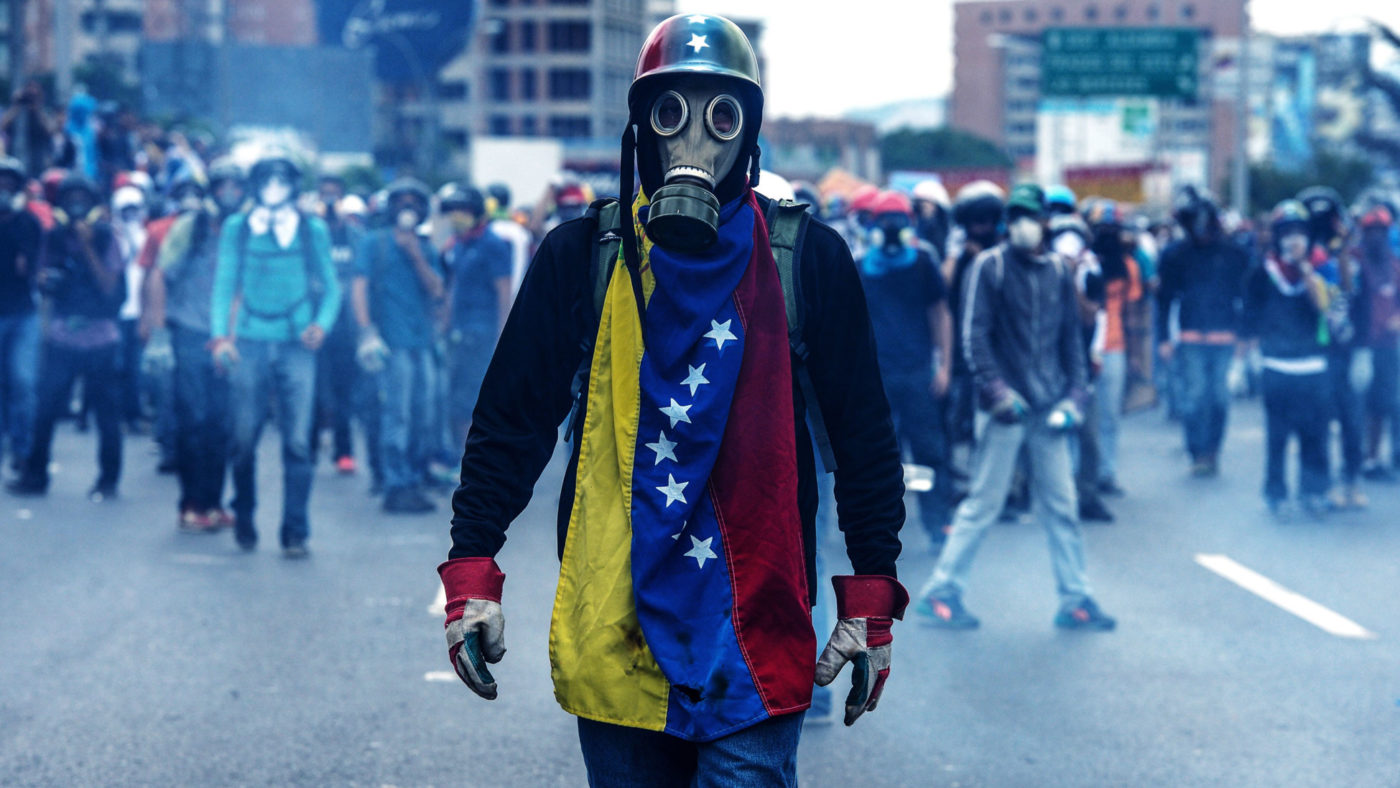At last, we’ve learned what went wrong in Venezuela: it wasn’t real socialism. At the World Economic Forum summit in Davos, Shadow Chancellor John McDonnell explained:
It’s not that the issue is socialism vs capitalism. […]
All the objectives of Chavez […] would have been successful if they had mobilised the oil resources to actually invest in the long term […]
I think in Venezuela they took a wrong turn, a not particularly effective path, not a socialist path.
McDonnell is in good company. Quite a few prominent figures on the Left, such as Noam Chomsky and Slavoj Žižek, are now explicitly disputing Venezuela’s socialist credentials.
With this, Venezuela joins a long list of countries that were once held up as role models of socialism by Western intellectuals, until their failures became so obvious and undeniable that they became an embarrassment for the socialist cause. At this point, those countries’ version of socialism retroactively ceases to be “real” socialism.
This has been going on for a long time. Thirty years ago, Friedrich Hayek wrote about, “the intellectuals’ vain search for a truly socialist community, which results in the idealisation of, and then disillusionment with, a seemingly endless string of ‘utopias’ – the Soviet Union, then Cuba, China, Yugoslavia, Vietnam, Tanzania, Nicaragua.”
The thing with economic theories is that they are never implemented in pure form. If you look at the composition of the Venezuelan economy, and search for non-socialist elements, you will, of course, find them. But what is clear is that over the past two decades, Venezuela has been travelling in a decidedly socialist direction.
In 2000, the country had an Economic Freedom score of 5.9 (on a scale from 0 to 10, where 10 represents pure capitalism, and 0 a completely state-controlled economy). Its score then dropped to 4.7 in 2005, to 4.0 in 2010, and to 2.9 in 2015. For comparison, France has an Economic Freedom score of 7.3, Sweden of 7.7, and the UK of 8.1. The drop in Venezuela’s overall score was driven by a particularly sharp drop in the categories “Legal system and property rights”, “Business regulation” and “Controls of the movement of capital and people”. Unless you have a better word for an economic policy that disregards property rights, directs business activity, and controls the movement of capital and people, I’d call that “a socialist path”.
Whenever a heavily state-controlled economy fails, socialists think that now would be a good time to embark on a semantic discussion about what socialism “really” means. But this is neither here nor there. It wasn’t socialism’s critics who attached that label to the Chavista programme. It was the regime itself, and its many Western admirers.
When Chávez first took office in 1999, his programme was not particularly socialist, and he did not receive much attention in the West. But during his second term in office, he changed track. In January 2005, Chávez addressed the World Social Forum, where he said:
There is no doubt in my mind […] that it is necessary to transcend capitalism […] through socialism, true socialism, with equality and justice. […]
We have to re-invent socialism. It can’t be the kind of socialism that we saw in the Soviet Union, but it will emerge as we develop new systems that are built on cooperation, not competition
Chávez referred to his supposedly new type of socialism as “21st Century Socialism”, a catchphrase which quickly caught on in the West. A few months later, it was used in New York Times headlines, and soon enough, Venezuelamania was in full swing.
From then until about 2014, it was almost mandatory for progressives to signal their pro-Chávez credentials. The list of high-profile Chavistas from those years reads like a Who’s Who of today’s British Left: Jeremy Corbyn, Diane Abbott, Seumas Milne, Owen Jones, Len McCluskey, Frances O’Grady – everybody who is anybody was at it.
There is an important distinction to be drawn here: not everybody who praises, say, a public housing programme or a public health programme in Venezuela is automatically a full-on Chavista. But what is noteworthy about the testimonies of Britain’s Venezuela aficionados is that they did not selectively praise this programme or that programme. Instead, praise for Chavismo tended to be of a much more abstract, and a much more holistic variety. Venezuela was praised, first and foremost, in big-picture terms, as an overall social and economic model. Indeed, one can find long-winded articles waxing lyrical about Venezuela without really saying anything about what that country actually did, other than being “an inspiration”.
Venezuelamania was not a selective endorsement of this or that policy. It was a wholesale endorsement of what was perceived to be a viable socialist alternative. This is why it is absolutely fair to rub the Chavista’s noses in the colossal failure of the economic model they have championed for so long, and from which they have clearly learned nothing.
As it happens, one of those Chavistas was John McDonnell, who said in 2006:
On every platform on my campaign trail, I’ve raised the issue of Venezuela. What we want now is a clear-cut commitment from the Labour government that it supports the Venezuelan revolution.
In 2014, when the Venezuelan economy was already in freefall, McDonnell still said:
[Chávez] lit a spark that really started a firebrand […] Venezuela and the Bolivarian Revolution became an item on the agenda for all socialists […]
The Bolivarian Revolution […] came at a time as well when capitalism went into yet another one of its crises. So here you had capitalism in crisis, demonstrating that it would always be crisis-ridden, […] and then in contrast with that you had the Bolivarian Revolution going on in Venezuela […]
So here you had the contrast between capitalism in crisis, and socialism in action.
Turns out, the line between “real” socialism and un-real socialism is a very fine one indeed.


